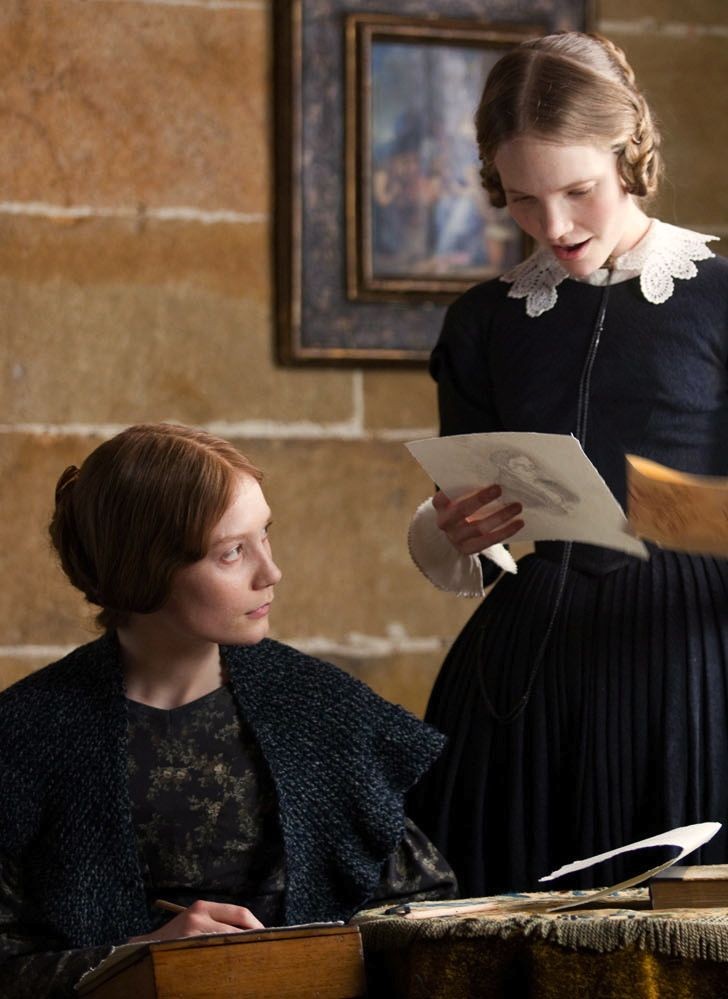Mary Rivers is a very small character, but in her brief scenes she is seen to be kind, supportive and compassionate. She is everything that the titular character in Jane Eyre was never given the chance to be. She is introduced at the beginning of the film, yet near the end of the story in the linear timeline. She and her family take Jane in after she flees Thornfield Hall and give her the first real glimpse of a humble, peaceful life. The likes of which she has never had the chance to experience. From her introduction it is clear Mary does not have Jane’s wild ambition, and she has less outward boldness and personality when compared to the rest of her family, but she is more genuine in her friendship with Jane than anyone else since her school days. She has the kind of wide-eyed innocence that Jane never had the luxury of developing, which is made very clear upon meeting Jane when her first thought is of the way Jane’s spirit would have haunted them had they not found her during the storm. Her youthful naivety lends some levity to the otherwise serious situation, and it is a welcome reprieve from the more grounded attitudes of those around her, even if it is easily quieted with naught but a disapproving look. Mary stands in stark contrast to almost every other woman in Jane’s life. She represents what Straw in the “Small Parts, Small Players” dossier of Screen calls “Domestic everydayness” (79) Though fleeting, this does much to cement for Jane exactly the kind of life that, despite all of the comfort and relative security offered, she does not want. Her desire for more than that everydayness spurs on her inevitable return to Thornfield, and to Mr. Rochester. The time Jane spends with Mary and her family is void of all the drama and heartache she found at Thornfield, but it is also lacking the soul and passion as well. Woloch sums it up best in The One vs The Many when he observes that “[her] significance… resides largely in the way that [she] disappears, and in the tension or relief that results from that vanishing.” (38) Mary in her brief appearances was a representation of everything Jane could be. Everything that we as the audience could not be convinced to want for her. It makes us long for the drama and the excitement and we are relieved when Jane chooses to forego the humble, peaceful life this family could provide her. Mary Rivers represents the end of a chapter in Jane Eyre’s life, but not the end of her story.
Fukunaga, Cary Joji, director. Jane Eyre. Universal Pictures, 2011.
Alex Woloch. The One Vs. The Many : Minor Characters and the Space of the Protagonist in the Novel. Princeton University Press, 2003.
Will Straw, Introduction, Screen, Volume 52, Issue 1, Spring 2011a, Pages 78–81, https://doi.org/10.1093/screen/hjq057

Provide Feedback